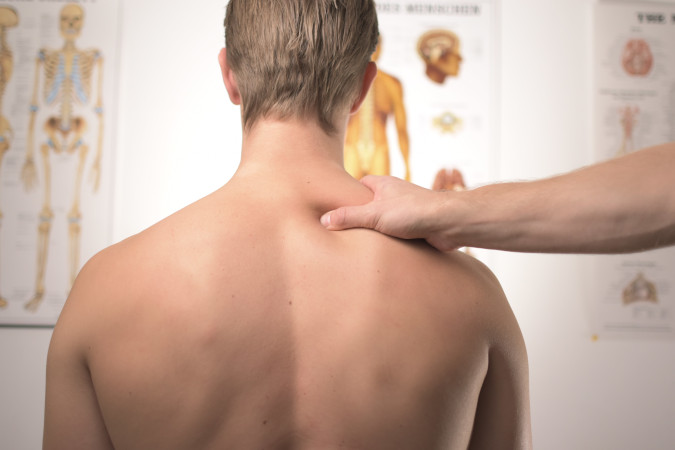
They design athletic equipment and treatment plans, manage sports centres, work in sports management and promotion. They also work with athletes to improve their fitness and performance levels, and coach them on proper mechanics.
They test seniors or other clients’ fitness and mobility levels and assess cardiac patients to recommend suitable levels of exercise (in consultation with a doctor). They also develop rehabilitation programs (for people with movement disorders) and run workplace assessments (to reduce losses due to injury and to increase worker productivity).
Research kinesiologists may monitor patients during exercise intervention programs (to make sure the program produces the desired results). They use technology to run assessments and tests (such as electrocardiographs, metabolic systems, electromyography, biofeedback machines, slow-motion film, and videotapes). They study the biomechanics and motor control of human movement and study factors that affect people’s commitment to fitness and rehab programs.
Clinical kinesiologists may assess body structures for problems (including muscular changes, cranial sutures, and spine and hip joints) and look for neurological and digestive causes of problems. They try to identify the root causes of problems (to fix the problem and relieve symptoms).
Average Hourly
$25.00
Range Hourly
$16.00 – $42.50
Average Yearly
$48,750
Range Yearly
$31,200 – $82,875
Other Professional Occupations In Therapy And Assessment (3144)
Biokineticist
Certified kinesiologist
Kinesiologist
Biomechanist
Exercise Physiologist
Exercise Specialist
Rehabilitation Services Practitioner
Trainer
Movement analyst – medical
Movement therapist
Exercise therapist
Human kineticist
Kinanthropologist
Kinesiologists usually require a university degree in kinesiology. Completion of bachelor's degree in Kinesiology, Physical Education, Exercise Physiology, or equivalent exercise science degree are often expected. Master’s in Kinesiology is often preferred.
Certification for kinesiologists is available through the Canadian Kinesiology Alliance
Average hourly |
Range hourly |
Average yearly |
Range yearly |
$25.00 |
$16.00 - $42.50 |
$48,750 |
$31,200 - $82,875 |
High
Employment outlook is good to fair across provinces. More information is available here.
Advancement in research, education, and clinical practice is possible.
2-4 years
Having a certificate in Physiotherapy aide program will facilitate employment:
Bachelor in Kinesiology at McGill University
Master of Science or Arts in Kinesiology at University of Victoria
Excellent communication skills; empathetic; ability to work independently, Patience, Flexibility, Organizational skills and attention to detail; Manual dexterity; teamwork; self-confidence; leadership skills; tech savvy; creativity and adaptability
Only regulated in Ontario. College of Kinesiologists of Ontario (CKO) regulates the profession in Ontario. Other places CKA and its affiliated provincial partners maintain the standards of practice.
The work can be physically demanding. Kinesiologists may do exercises with patients. They may need to move or lift patients who cannot exercise alone.
Research may involve long hours of studying computer output, collecting data, and monitoring exercise programs.
Difference between Physiotherapist/Physiotherapy assistant and Kinesiologist
Physiotherapist and physiotherapy assistants under supervision of a registered physiotherapist treats patients to restore, maintain, and make the most of a patient’s mobility, function, and well-being. Physiotherapy helps through physical rehabilitation, injury prevention, and health and fitness. A 4 year university undergraduate degree in Health-related education preferably Kinesiology, or related field (Human Kinetics, Physical Education, etc.) PLUS 2 years Master’s Degree in Physiotherapy, with supervised clinical training.
Kinesiologist, one the other hand, study the science of human movement, performance and function, and incorporates the sciences of biomechanics, anatomy, physiology, psychology and neuroscience. Requires 4 year university undergraduate degree in Kinesiology, or related field (Human Kinetics, Physical Education, etc. and after registration they have a designation of R. Kin.
The main difference between them that stands out the most to me is their education level. Kinesiologists are minimally required to complete 4 years of university plus write a provincial exam. A physiotherapist has the same 4 years of education plus 2 more years of specialized education on diagnosing and treatment of injuries.
Enrolling directly into a Bachelor program
Enrolling directly into a Master’s program
Or, enrolling into a diploma level program that can be stepping stone to a Bachelor program such as these programs in Grand Prairie Regional College that leads to Bachelor in Kinesiology at University of Alberta